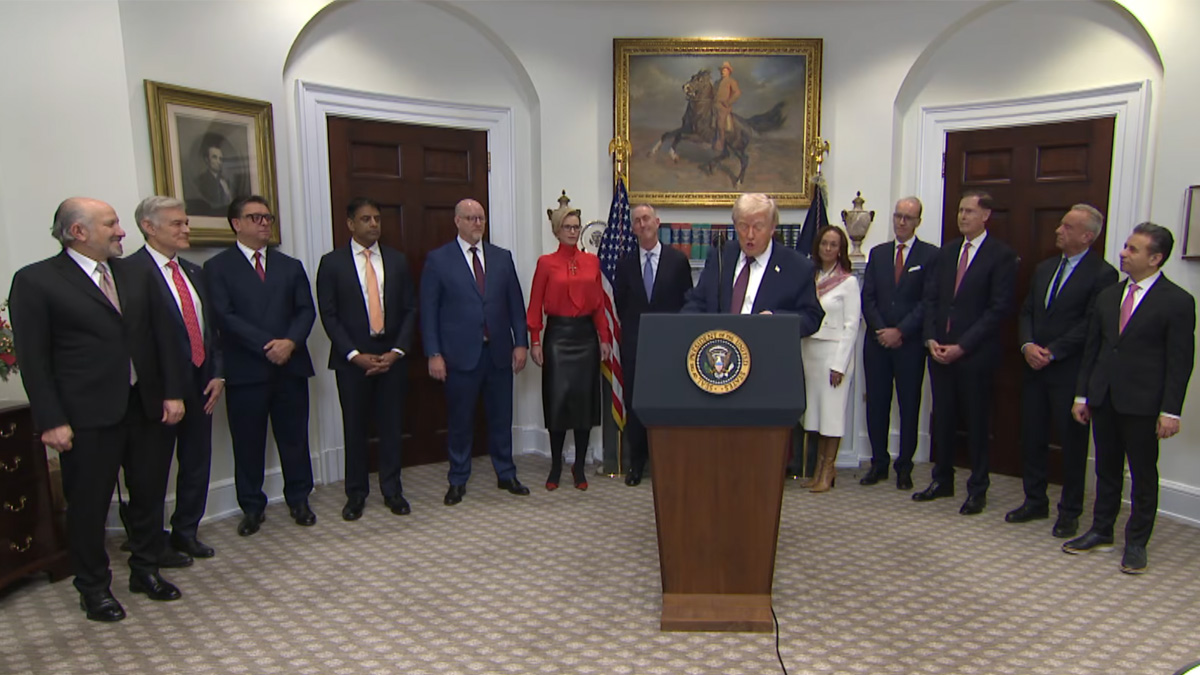U.S. charges four individuals over alleged scheme to funnel restricted Nvidia AI chips to China
U.S. prosecutors have charged two Americans and two Chinese nationals with conspiring to illegally export advanced Nvidia AI chips to China through a Florida-based shell company, a scheme authorities say threatened national security.

- Four men in the United States have been charged with illegally exporting advanced Nvidia AI processors to China.
- Prosecutors allege the group used a Florida shell company and falsified paperwork to bypass strict U.S. export controls.
- The case comes as the U.S. tightens limits on high-performance AI chip sales to China amid rising security concerns.
According to a news release by the Department of Justice on 20 November 2025, two Americans and two Chinese nationals have been charged with conspiring to secretly export advanced Nvidia artificial intelligence processors to China.
Prosecutors said the scheme posed a threat to U.S. national security.
The indictment names Hon Ning “Mathew” Ho, 34, a U.S. citizen living in Tampa; Brian Curtis Raymond, 46, of Huntsville; Cham “Tony” Li, 38, a Chinese national in San Leandro; and Jing “Harry” Chen, 45, a Chinese national residing in Tampa on a student visa.
According to prosecutors, the four face counts including conspiracy to violate the Export Control Reform Act, smuggling and money laundering.
Authorities allege the group orchestrated a sophisticated plan to circumvent export restrictions on high-performance Nvidia GPUs.
Assistant Attorney General for National Security John A. Eisenberg said the indictment outlined “a deliberate and deceptive effort” to transship controlled chips to China by using false paperwork, fabricated contracts and misleading declarations to U.S. agencies.
He added that the National Security Division remains committed to disrupting illicit markets for sensitive U.S. technologies and holding offenders accountable.
Prosecutors allege the men used a Tampa-based entity, Janford Realtor LLC, as a front for the operation.
Despite its name, the company did not engage in real estate activity and was allegedly created to disguise technology shipments bound for China.
The indictment states the conspiracy operated from September 2023 to November 2025.
The group reportedly routed exports through third countries, including Malaysia and Thailand, to evade U.S. oversight.
Investigators said the men falsified shipping documents and contract records to conceal the final destination of the processors.
They allegedly carried out four separate export attempts involving advanced Nvidia GPUs.
The first two shipments, sent between October 2024 and January 2025, contained about 400 Nvidia A100 processors.
Investigators stopped two later shipments that included 10 Hewlett Packard Enterprise supercomputers with Nvidia H100 GPUs and 50 H200 GPUs.
Authorities stated the defendants received more than US$3.8 million in wire transfers from China to finance the purchases. Prosecutors also noted the men did not obtain the required licences and knowingly misrepresented the end-users of the technology.
The indictment cites China’s goal of becoming a global AI leader by 2030, including the use of advanced AI systems to support military modernisation and the development of weapons of mass destruction.
Prosecutors allege that China has sought access to cutting-edge U.S. processors, including Nvidia GPUs, to further those ambitions.
U.S. Attorney Gregory W. Kehoe said the case shows the commitment of the U.S. Attorney’s Office for the Middle District of Florida to safeguarding national security. He praised the investigative work that led to the charges.
The case comes as other jurisdictions respond to similar attempts to evade U.S. export restrictions.
In February 2025, Singapore charged three men after a multi-agency investigation into the unauthorised movement of Nvidia chips from Singapore to the Chinese AI firm DeepSeek.
According to Singapore authorities, the operation began after a tip-off suggested servers equipped with Nvidia AI chips were being exported to Malaysia with an unclear final destination. Two Singaporeans and Chinese national Li Ming, 51, were charged in connection with the case.
Then-Home Affairs and Law Minister K. Shanmugam said on 3 March 2025 that some of the servers appeared to contain components subject to U.S. export controls.
Singapore has been coordinating with Malaysian and U.S. authorities to share information and support ongoing investigations.
Since 2022, the U.S. government has imposed strict regulations limiting the sale of high-performance AI chips to China.
Officials have argued that restricting access to advanced processors is necessary to prevent strategic technologies from bolstering China’s military capabilities.








1 Comment